MercoPress. South Atlantic News Agency
Tag: David Davis
-
Tuesday, June 12th 2018 - 08:52 UTC
Decisive debates in Commons for Theresa May and Brexit

UK prime minsiter Theresa May has appealed to Tory rebels not to undermine her negotiating position with the EU by backing amendments to Brexit legislation made by the Lords. Addressing a meeting of the backbench 1922 committee on Monday ahead of a series of crunch Commons votes, the Prime Minister told MPs to consider the signal that would be sent to Brussels if the Government was defeated.
-
Friday, June 8th 2018 - 06:58 UTC
Theresa May fighting to keep Brexit plans on track: major debate next Tuesday in the Commons
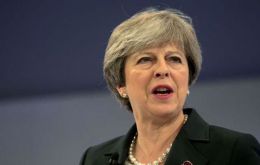
Theresa May has been fighting to keep her Brexit plans on track despite a Cabinet row over proposals for the Irish border and a potential revolt in the Commons. The UK’s proposals for a “backstop” arrangement for the border between Northern Ireland and Ireland are to be published “shortly”, although Brexit Secretary David Davis understood to have concerns about some of the details.
-
Thursday, April 26th 2018 - 09:04 UTC
UK could consider an extension of Brexit talks if Parliament rejects withdrawal deal
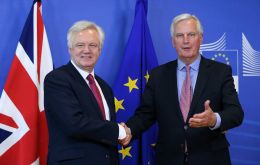
Brexit Secretary David Davis has suggested the UK government could consider asking for Brexit negotiations to be extended if Parliament votes down the withdrawal deal later this year. Speaking to the Exiting the EU Committee on Wednesday, Davis conceded that it would not be impossible to prolong Article 50 negotiations, having previously said that the deal would “fall” if MPs vote it down.
-
Tuesday, March 20th 2018 - 10:44 UTC
UK and EU agree on a “large part” of Brexit's implementation period, but issues remain
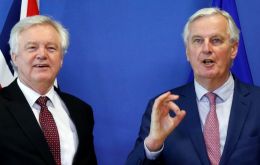
UK and EU have agreed on a “large part” of the agreement that will lead to the “orderly withdrawal” of the UK. Negotiators Michel Barnier and David Davis said the deal on what the UK calls the implementation period was a “decisive step” in the Brexit process, although some of the issues still to be resolved include the Northern Ireland border.
-
Tuesday, March 20th 2018 - 07:35 UTC
UK/EU transition includes Gibraltar, but Spain retains veto power
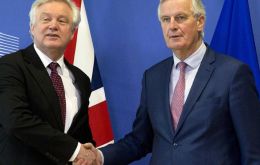
The UK and the European Union have agreed the terms of a transition deal that covers Gibraltar but also maintains Spain’s controversial veto, according to a report from the Gibraltar Chronicle. Gibraltar is included within the territorial scope of a draft withdrawal agreement that also sets out arrangements to smooth the UK’s departure from the bloc after March 2019.
-
Tuesday, January 30th 2018 - 07:00 UTC
EU rules for post-March 2019: UK abides but will not be involved in making them
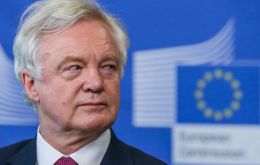
The European Union has set out its demands for the temporary transition period after the UK leaves in March 2019, and EU wants the UK to continue to follow its rules but not be involved in making decisions.
-
Thursday, January 18th 2018 - 07:14 UTC
Brexit bill passes House of Commons and now faces Lords' tough debate
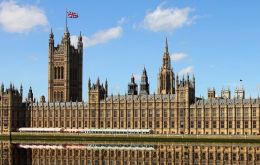
The marathon bill paving the way for Britain to leave the European Union passed a crucial stage in the House of Commons on Wednesday night. With support of 324 MPs, and the opposition of 295 MPs, a government majority of just 29, the bill for Exiting the EU aims to convert all European law into British law.
-
Thursday, January 11th 2018 - 09:34 UTC
UK charm offensive in Germany to lobby for London's post Brexit financial services
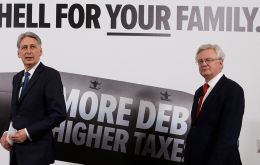
The German government on Wednesday sought to pour cold water over Britain's hopes of a bespoke post-Brexit arrangement for financial services. German Chancellor Angela Merkel's spokesman told reporters that Berlin's focus would remain on preserving a unified stance among the 27 EU nations as Brexit negotiations prepare to enter a critical phase. Britain's financial services industry is expected to be one the main battlegrounds in the next stage of talks.
-
Thursday, December 14th 2017 - 17:39 UTC
EU warns UK there is no “backtracking” on the divorce deal reached by PM May in Brussels
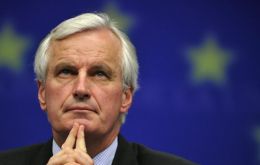
Britain and the EU face a “furious race against time” to agree a transition deal and future trade relations within the next 10 months, European Council president Donald Tusk has said. In a letter to the leaders of the 27 remaining EU states ahead of a crucial summit on December 14-15, Mr Tusk urged them to show continued “unity” as Brexit negotiations enter their second phase.
-
Tuesday, December 12th 2017 - 08:33 UTC
Scottish Brexit minister calls for “basic answers” to the UK/EU deal
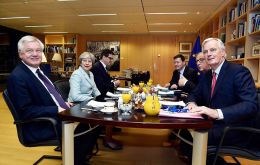
Scottish Brexit minister Mike Russell has called for “basic answers” about the deal struck with European leaders ahead of talks with UK ministers. Mr Russell is in London for a summit with members of the UK government and the other devolved administrations.
